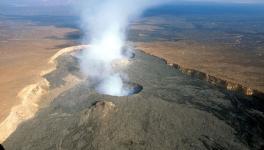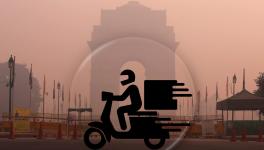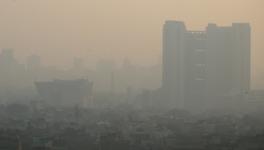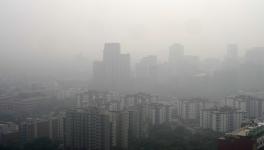Air Pollution Affects Children’s Cardiac Systems, Causes Inflammation: Study
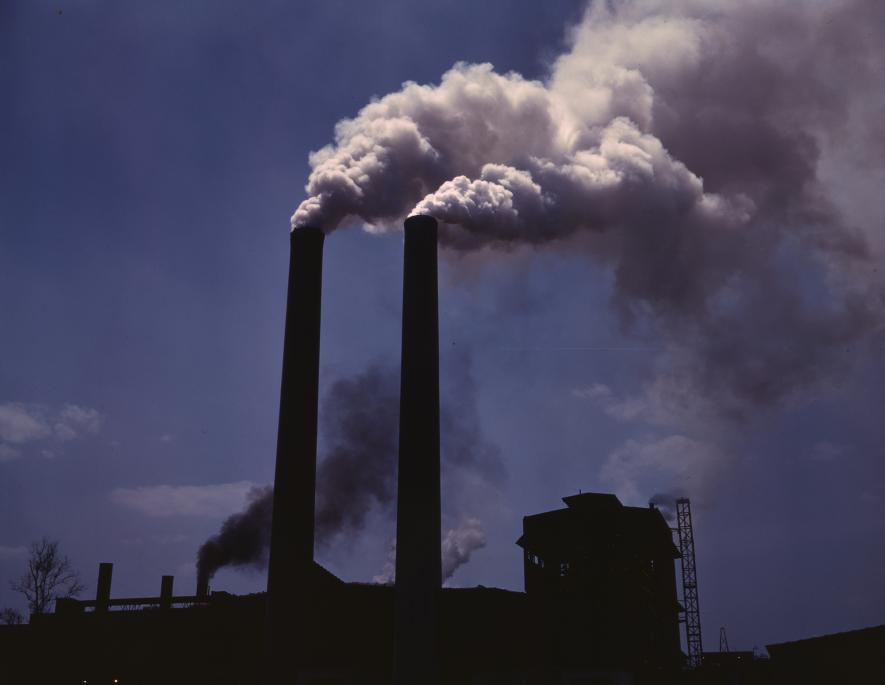
Image Courtesy: Wikipedia
Air pollution is linked to cardiac (related to the heart) regulation among children and causes inflammation as well, a latest study shows. The study conducted by researchers of the University of California, Davis, based on the air pollution data, including during wildfires, from federal monitors, showed the link between air pollution and children's cardiac physiology. The study was published in New Directions for Child and Adolescent Development on August 3.
The researchers found that blood samples manifested an elevated level of markers of inflammation, such as the interleukin-6, among children exposed to higher levels of air pollution. In addition to inflammation-causing agents, the researchers also found that higher pollution is linked to lower cardiac regulation amongst children. The cardiac autonomic regulation impacts the heartbeats, precisely how fast it beats and how hard it pumps.
The researchers collected blood samples from 100 healthy children in the age group of 9-11 years in the Sacramento area. The pollution near the homes of the children was recorded by the Environmental Protection Agency (EPA). The importance of the study, as experts see, is that it included pollution from wildfires, which is also related to numerous adverse health effects in children.
"The children have smaller bodies and organ systems than adults, including asthma and decreased lung function, as well as neurodevelopmental outcomes like attention deficit hyperactivity disorder, autism, and deficits in school performance and memory," the researchers said.
The researchers focused on particulate matters and how they impact children's health. Especially, they considered the PM 2.5 data obtained from the records of the EPA. The PM 2.5 are tiny particles that float in the air and are 2.5 micrometres wide. Remember, a micrometre is one-millionth of a meter. These tiny air pollutants are dangerous as they can penetrate the lungs and pass on to the bloodstream. The researchers found that the children's blood contained elevated levels of the markers for systemic inflammation. In addition, the researchers also analysed the ECG (electrocardiogram) of the children's hearts and found a link between PM 2.5 in lowering autonomic cardiac regulation. The researchers used EPA data containing the daily air quality summary information of the outdoor monitoring systems.
Out of the subjects considered for the study, the researchers found 27 children having inflammation markers in their blood. This was when wildfires were happening, and some of the fires took place 100 miles away from the laboratory, where blood was collected.
"By examining daily and monthly levels of particulate matter in relation to children's inflammation and autonomic physiology, this study further demonstrates the immediate consequences of exposure to air pollution, which may increase the risk of future disease. As climate change continues to impact children and families, it is paramount to understand the impact of environmental contaminants such as air pollution on children's physiology," said Anna M. Parenteau, the lead author, in a statement.
Previously, studies showed air pollution's link with allergic sensitisation, respiratory problems, and cellular changes in children's lungs. Researchers say that children are especially vulnerable to air pollution as their lungs have greater surface area relative to their body weight and thus can uptake higher levels of contaminants.
Get the latest reports & analysis with people's perspective on Protests, movements & deep analytical videos, discussions of the current affairs in your Telegram app. Subscribe to NewsClick's Telegram channel & get Real-Time updates on stories, as they get published on our website.









